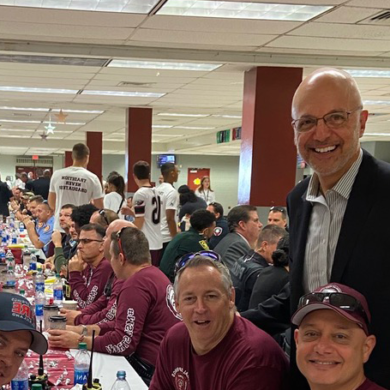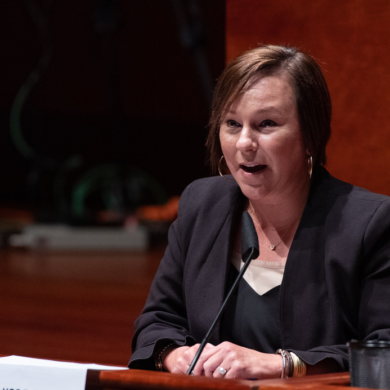Published Date: 05-15-20
By Ruth Vitale
Representative Hank Johnson, of Georgia, is Chairman of the Judiciary Subcommittee on Courts, Intellectual Property and the Internet.
RUTH VITALE: Representative Johnson, thank you for agreeing to answer questions for our new Heroes on the Hill series of Q&A’s. Given your position as the Chair of the IP Subcommittee, we wanted to get your thoughts on matters of copyright policy. First, can you tell us how you became interested in copyrights?
REPRESENTATIVE HANK JOHNSON: Copyrights are unique in that they touch each of us in meaningful ways and often from a very young age, even unknowingly. There are writers, musicians, artists, and performers that have left indelible impressions in my life and many others’ lives, each of whom was sustained by a copyright system that valued and protected their works so that they could continue to create. After learning more about the copyright system throughout the years, it has been remarkable to witness just how integral these creative works are to the nation’s enrichment and to the economy.
RV: What do you think are the most important copyright issues facing the Judiciary Committee right now?
HJ: The Committee remains focused on ensuring that the copyright system is strong and that it functions properly. An important aspect of examining the system’s strength and proper functioning is understanding whether the system is keeping pace with the considerable changes in the way the public consumes and is exposed to creative content. In today’s age – and particularly in the current environment where many of us are sheltering in place at home – the public turns to the internet for a lot of that consumption. The proliferation of authorized video streaming services has made creative content more accessible than ever, but it has also been matched by a rise in the pirating of these copyrighted works. This type of theft leads to losses for creators, and it has a significant impact on the economy that some reports estimate to be tens of billions of dollars. As many creative industries are currently at a standstill during the public health crisis, a strong copyright system that combats this theft is even more critical.
RV: Over in the Senate, Senator Thom Tillis is looking to write legislation that might close the loophole in the law that makes streaming piracy a simple misdemeanor and not a felony, as downloading is. Is this something you’re considering in the House?
HJ: Piracy is a significant issue facing copyright owners, and the Senate’s examination of potential policy responses is timely. The House continues to more broadly explore what policies might best address this issue, though it has not narrowed its focus to any one particular change.
RV: You represent a district in Atlanta, Georgia. Georgia is the third largest production center for movies and television shows in the United States. Can you tell our readers why the work that you do on the Judiciary Committee is so important for the jobs that the industry supports in Georgia?
HJ: I am proud of the vibrant and diverse entertainment community in Georgia. The Committee’s work in upholding an effective copyright system helps ensure that these Georgians’ hard work is rewarded fairly and not stolen without compensation. The benefits of these protections affect more than the celebrity names that grace the movie posters and trailers. Rather, these protections are crucial to the livelihoods of each person that contributes his or her talents, either on-screen or off-screen, to the films and television shows that are made here.
RV: Often times, Silicon Valley and Hollywood are on opposite sides of the policy debates around copyright. Do you see areas of compromise where you would encourage the two sides to cooperate and work toward solutions to avoid legislation?
HJ: While the technology and creative industries have disagreed about certain policy issues, both sides’ understanding of where their goals are complementary or even intersect can be a springboard for thoughtful conversations and cooperation. Technology companies have created innovative platforms and products that increase the breadth and depth of creative content available to the public. When authorized, this accessibility enhances the reach and impact of creators’ hard work. Yet the integrity of these innovations is strengthened when they include mechanisms that protect creators’ hard work and their intellectual property rights. Acknowledging that an innovation can retain its value with these mechanisms in place can move conversations in the right direction. Neither side should consider the other an enemy.



